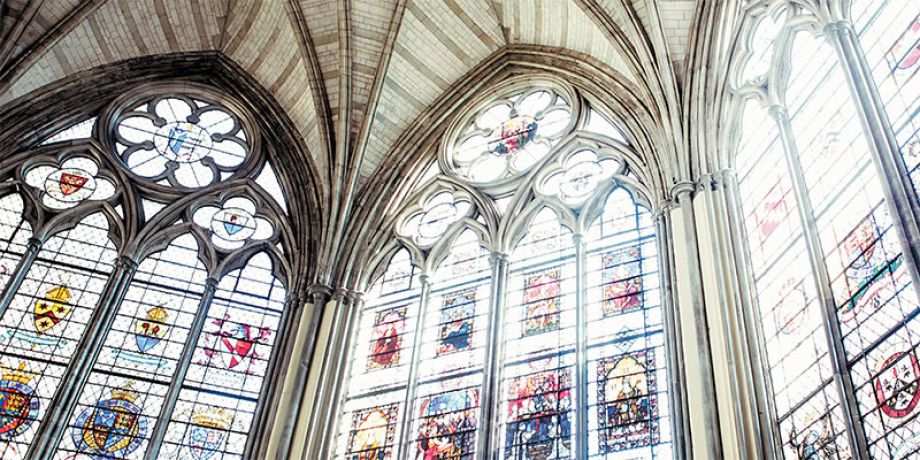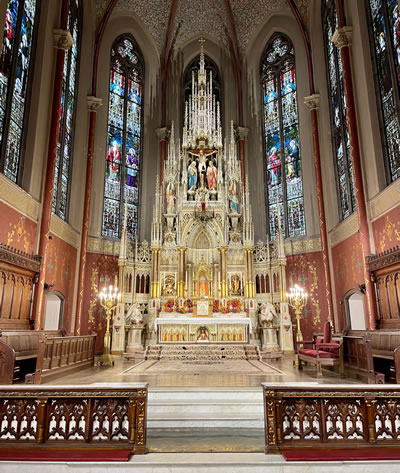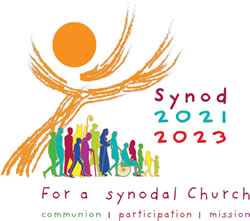
I am hoping that the Synodal Pathway will provide the Church with an opportunity to put in place processes that would see the Church becoming a better version of itself. I strongly believe that the credibility of the process will determine the acceptability of the results. We are all aware of political examples where a faulty process leads to rejection of the results.
In his promotion of the processes the Synodality, Pope Francis talks about walking together, listening to each other, and listening to the Holy Spirit speaking through other people. More recently the new Archbishop of Tuam, Francis Duffy, said at his installation last January that Synodality “... is a pathway, a journey accompanied by a great variety of people. We will continue listening, discerning and planning as we walk together and with the Holy Spirit; I see no alternative.” This commitment gives me hope because it implies an equality of persons, and it is based on a successful process, the one described in Chapter 15 of the Acts of the Apostles, where issues about how to accept non-Jewish Christians were settled by listening to experience, discerning the presence of the Holy Spirit, and coming to a consensus for change. The consensus is presented as “the Holy Spirit and we have decided…”
 Decisions are about courses of action and the kind of decisions to be expected of a Synod are about changing the institution. We are familiar with the struggle involved in changing our personal lives and how difficult it is to come to the self-knowledge needed to put our lives in order, to leave behind the baggage that clutters and obstructs us, to overcome whatever is making us less human, whether that comes from outside us or inside us. We have some familiarity with the struggles involved in changing the civil institutions within which we live and which in turns shape our lives, whether they be the cultural, political, economic or technological institutions of our modern world. But we have a little familiarity with changing the institution of the Church, partly because it is ancient and complex, but more perhaps because we recognize that despite its many dreadful sins and mistakes, it connects us with God through Jesus Christ in the Holy Spirit. So while we need to bring forward what we got right, we also need to let go of what we got wrong, and as in the prayer attributed to St. Francis, we must have the wisdom to know which is which.
Decisions are about courses of action and the kind of decisions to be expected of a Synod are about changing the institution. We are familiar with the struggle involved in changing our personal lives and how difficult it is to come to the self-knowledge needed to put our lives in order, to leave behind the baggage that clutters and obstructs us, to overcome whatever is making us less human, whether that comes from outside us or inside us. We have some familiarity with the struggles involved in changing the civil institutions within which we live and which in turns shape our lives, whether they be the cultural, political, economic or technological institutions of our modern world. But we have a little familiarity with changing the institution of the Church, partly because it is ancient and complex, but more perhaps because we recognize that despite its many dreadful sins and mistakes, it connects us with God through Jesus Christ in the Holy Spirit. So while we need to bring forward what we got right, we also need to let go of what we got wrong, and as in the prayer attributed to St. Francis, we must have the wisdom to know which is which.
The infallibility of the Church means that while we can be confident of the truths about God, life and love as revealed principally in the life, ministry, death and resurrection of Jesus, and expressed for example in the Apostles’ Creed or the longer Nicene Creed, our understanding of these realities can always be improved. There is no infallible wisdom about our decisions on how to live our lives in accordance with them.
Over the last two thousand years there has been great progress in our understanding of what it means to be a disciple and myriad decisions on how to go about it. However, as well as often failing to live up to our good decisions, we also have a history of failing to translate past understandings into the different idioms of different cultures, with the inevitable result of inadequate decisions for Christian living. Think, for example, how much of the richness of the New Testament image of the Reign of God as a wedding feast is lost in the image of the “salvation of souls” that I grew up with, and how that is going to affect pastoral policies.
 Pope John XXIII intended the Second Vatican Council (1962-65) to mark an end to a period of decline that had already lasted almost 300 years. He also intended it to set the Church on a course of recovering aspects of our tradition that should never have been forgotten or minimized and to engage in a dialogue of life with the modern world.
Pope John XXIII intended the Second Vatican Council (1962-65) to mark an end to a period of decline that had already lasted almost 300 years. He also intended it to set the Church on a course of recovering aspects of our tradition that should never have been forgotten or minimized and to engage in a dialogue of life with the modern world.
We need to deepen our understanding of the fact that unlike the Second Vatican Council, the Synod Pope Francis is convoking is not just a bishops’ synod but a church synod; it is not a parliament or a discussion of opinions but a forum for listening to everybody’s experience of discipleship with compassion and tenderness, because there is a lot of hurt and harm in our history.
Then we must discern what may be the way forward, what is the newness the Holy Spirit is calling us towards. I take it as a good omen of newness that a woman, Dr. Nicola Brady, is chair of the Irish Bishops’ Synod Steering Committee. I hope that we will be able to take on board what we hear from listening to each other. However, I worry that we do not have enough freedom to move forward. There are many personal instances of victim and oppressor being reconciled, but I don’t know of any victim collective, or community, being reconciled with any oppressor collective or community in Ireland or Britain. A wonderful example of reconciliation that has taken place in my lifetime is that which occurred between Germany and France and which has enabled both countries to find new ways forward in peace and friendship.
Archbishop Francis Duffy of Tuam also said on the day of his installation that “Synodality isn’t always easy, it can be challenging and it can be energizing. The Holy Spirit is present and who knows where that combination of listening, walking together and prayer and discerning will lead?” Would the CELAM (Latin American Bishops’ Conference) model for participation: 20% bishops, 20% religious, 20% clergy, 40% laity, work for us? Would the FABC’s (Federation of Asian Bishops’ Conferences) insistence on permanent dialogue within the Church, with other religions, and with the world we live in help us?
Columban Fr. Sean McNulty was ordained in 1965 and studied Missiology at the Gregorian University in Rome. He spent 25 years on mission in the Philippines and taught at the Pacific Mission Institute in Sydney. He was also a Director of the Faith & Mission renewal program for missionaries in Ireland. He spent 20 years in China between 1995-2015.